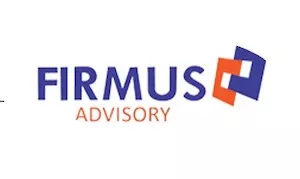
The International Accounting Standards Board (IASB) on April 9, issued a new IFRS, that is, IFRS 18 Presentation and Disclosure in Financial Statements to replace IAS 1 Presentation of Financial Statements. The Effective date for IFRS 18 is 1 January 2027: though earlier application is permitted; this must be disclosed accordingly.
The new Standard, IFRS 18 Presentation and Disclosurein Financial Statements, will give investors more transparent and comparable information about companies' financial performance, thereby enabling better investment decisions. This shall affect all companies using the IFRS Accounting Standards.
IFRS 18 introduces three sets of new requirements to improve companies' reporting of financial performance and give investors a better basis for analysing and comparing companies. It also seeks to improve the usefulness of information presented and disclosed in financial statements.
Improved comparability in the statement of profit or loss (income statement)
Previously, there wasn't a specific structure for income statement presentation; entities select how to present the subtotals on their income statements. Often, companies report an operating profit but the way operating profit is calculated varies from company to company, reducing comparability.
IFRS 18 introduces three defined categories for income and expenses; these are
a. operating,
b. investing and
c. financing
This is expected to improve the structure of income statement, and requires all companies to provide new defined subtotals, including operating profit.
This enhanced structure and new subtotals are expected to give investors a consistent starting point for analysing companies' performance and make it easier to compare companies' performance.
Enhanced transparency of management-defined performance measures
Investors rely heavily on financial performance measures in published financial statement but there isn't enough information given on this performance measurement.
IFRS 18 therefore requires companies to disclose explanations of those company-specific measures that are related to the income statement, referred to as management-defined performance measures. The new requirements will improve the discipline and transparency of management-defined performance measures, and make them subject to audit.
More useful grouping of information in the financial statements
IFRS 18 sets out enhanced guidance on how to organise information and whether to provide it in the primary financial statements or in the notes. These changes are expected to provide more detailed and useful information. IFRS 18 also requires companies to provide more transparency about operating expenses, helping investors to find and understand the information they need. This certainly will resolve the issue of too detailed information, that may end up been redundant or too little financial information that will certainly affect investors decision making negatively.
Conclusion
The changes that IFRS 18 is bringing could be described as revolutionary, since such a sweeping change of this magnitude has not been experienced in the last 20 years of the general accounting standard landscape.
It is worth noting that, many requirements under the IAS 1 were carried forward by IFRS 18 and they remain unchanged.
To view the article in full clickhere
The content of this article is intended to provide a general guide to the subject matter. Specialist advice should be sought about your specific circumstances.


